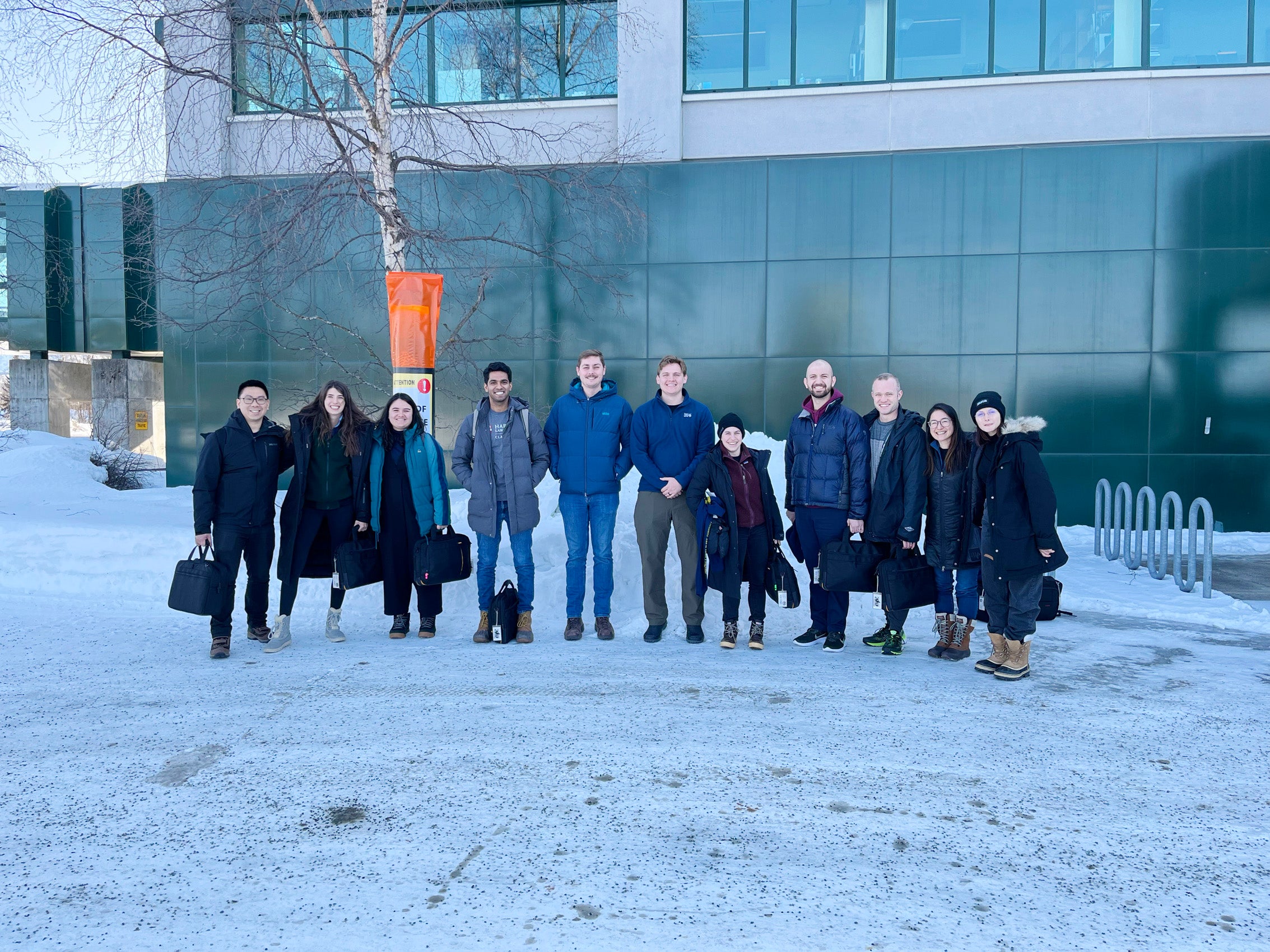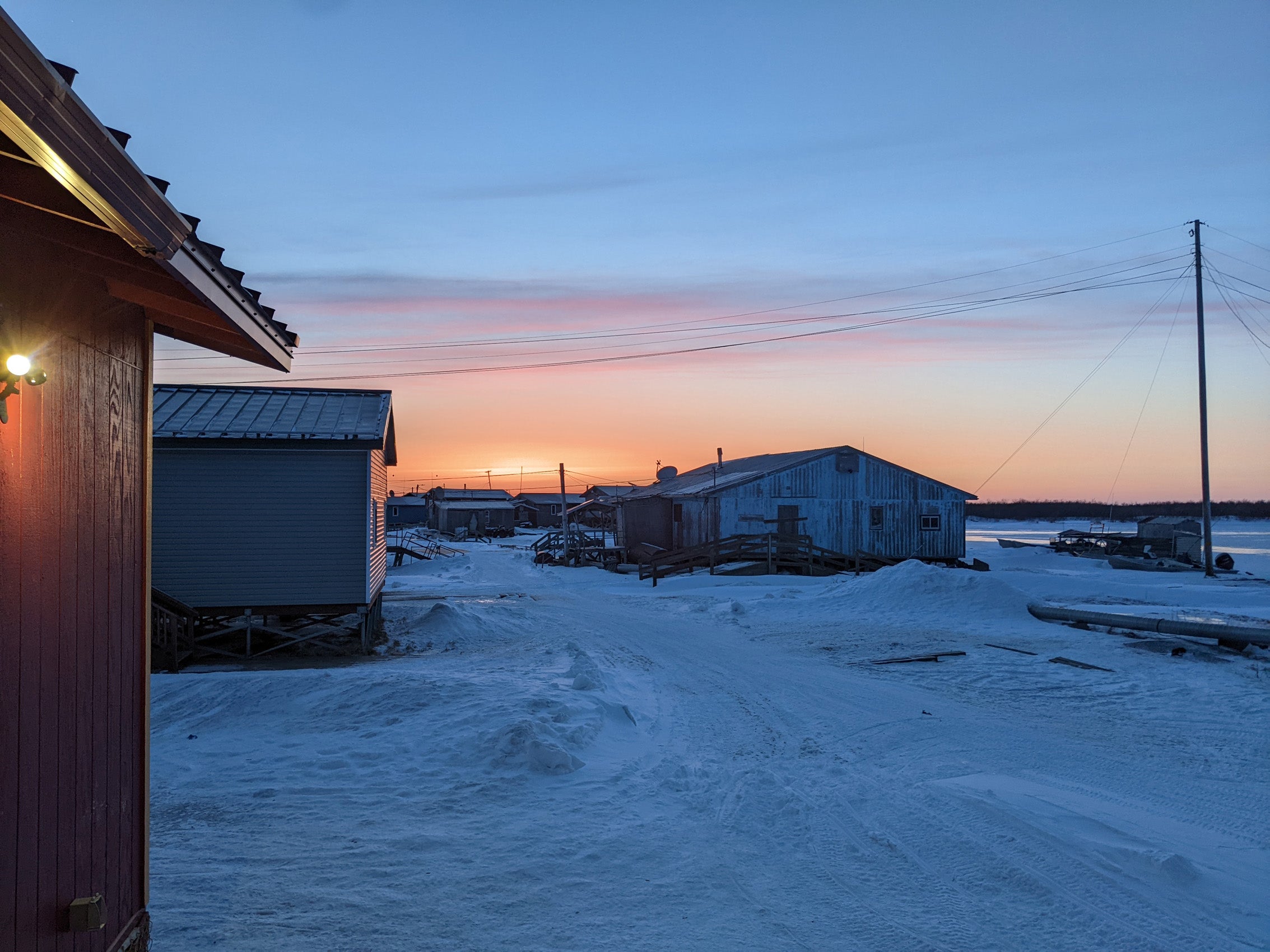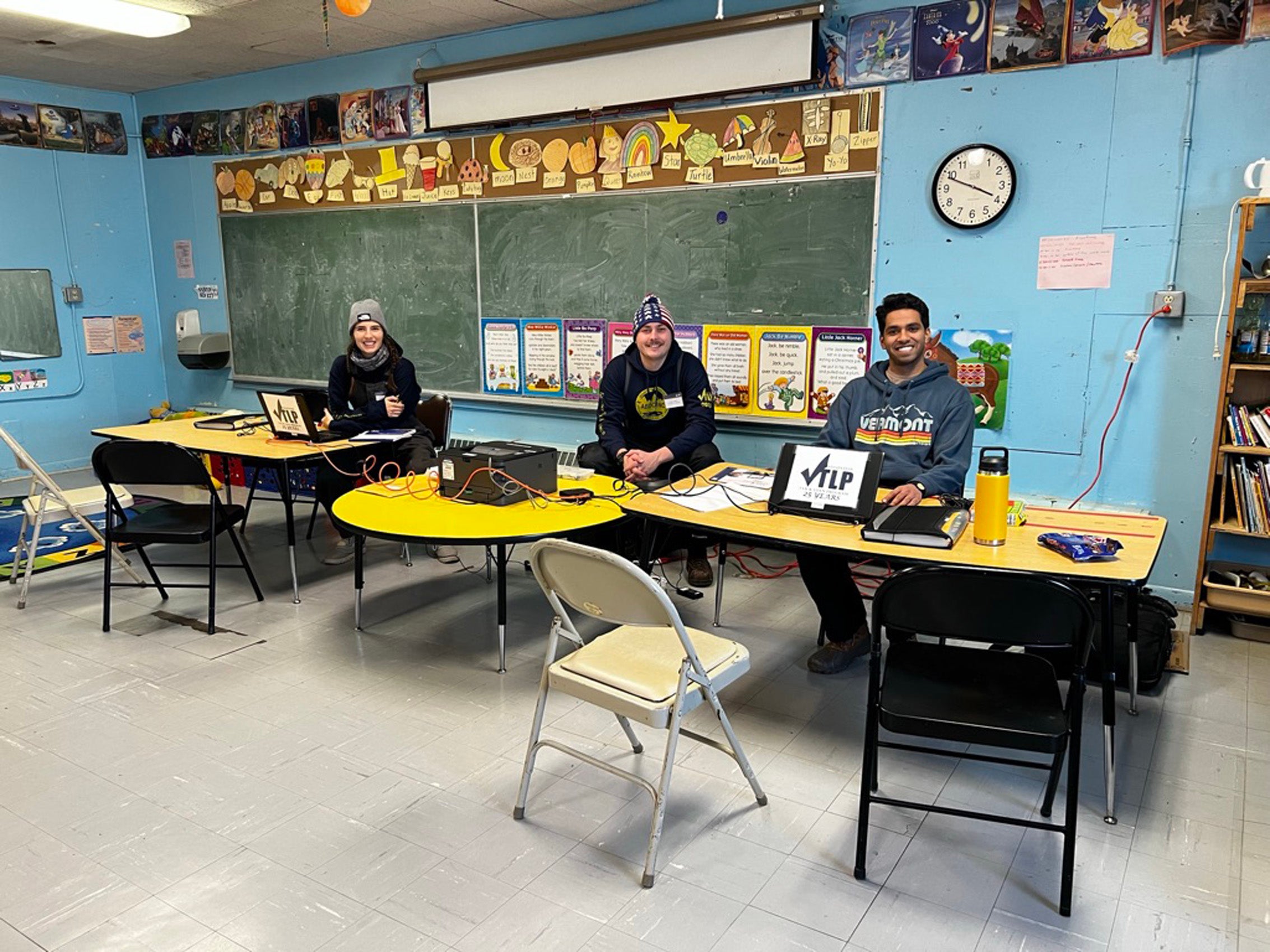In remote Alaska, Harvard Law students spent 12-hour days during spring break preparing tax returns for indigenous communities.
By Elaine McArdle
Via Harvard Law Today
This March, as some of their classmates left Cambridge for warmer climates, ten Harvard Law School students trekked to arctic Alaska during spring break to help prepare tax returns for mostly low-income clients, primarily in indigenous communities.
Working in remote areas, they sometimes had no running water and slept on the floors of local schools or community buildings. Bush planes were often the only way in and out of isolated villages. The students put in 12-hour days since they might be the only tax preparers the residents would see all year. They were warned that they could endure unforeseen challenges: waiting outdoors on an airstrip at -20 degrees Fahrenheit due to a scheduling snafu, say, or surviving nearly a week without Internet service. And they were warned they might not make it back to campus before classes resumed if a blizzard prevented air travel.

For the most part, the trip went off without major hitches. And by the end of the week, the group — including Jon-Yin Mills Chong ’25, who launched the Alaska spring break project at Harvard Law School after having started it at Cornell as a graduate student — had filed approximately 500 tax returns which, in most cases, will result in tax refunds for their clients. Accurate and timely tax filings can have all kinds of legal implications for taxpayers, Chong notes, which is another reason they’re so important.
“There are a lot of things you can do with spring break besides working 12-hour days preparing tax returns in challenging conditions,” says Chong, “so it’s a big commitment but it’s also incredibly rewarding.” In addition to providing direct services to people who need them, “you are seeing places you would never, ever get to see without providing this service.”

“It was so gratifying to tell folks, ‘You’re going to get X dollars back,’” says Anne DeLong ’24, who spent several days in a small city in the Central Yup’ik area working directly with indigenous taxpayers, then several more in Anchorage, where she prepared returns mailed in from remote areas. DeLong notes, that while the eviction defense work she does at the Harvard Legal Aid Bureau can result in victories, they often take more time. “It’s so great to see the work you do will have an immediate positive impact on someone’s life or their family’s life.”

Filed in: Pro Bono
Tags: Class of 2023, Class of 2024, Class of 2025, pro bono, Spring Break Pro Bono Trip